Food hygiene courses
Train your employees in the safe preparation, cooking, handling and storing of food with our IOSH Approved, CPD Certified food hygiene courses.

Training For Your Team
Complete the form below to discuss
multi-licence discounts with our team.
Food safety facts and figures
Ensure food safety and protect customers and your business with Praxis42.
2.4m
Cases of foodborne illness every year in the UK
180
Deaths per year in the UK caused by foodborne diseases
2m
People in the UK suffer from a food allergy
Food hygiene courses
Our courses are created by experts, delivered online, and CPD Certified and IOSH Approved.
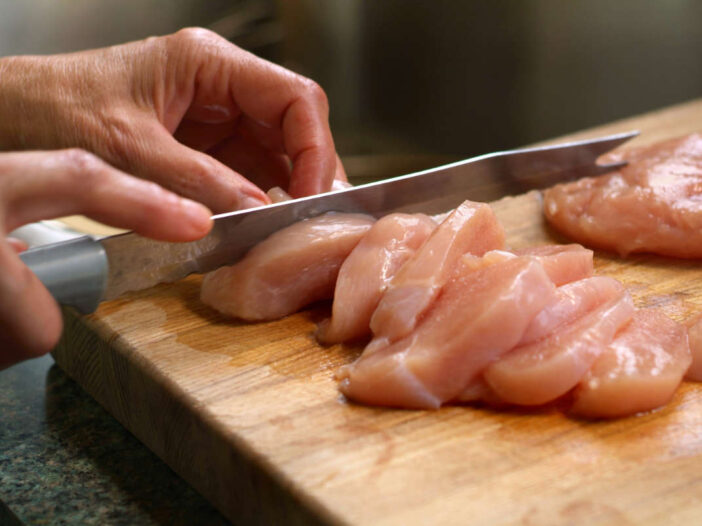
Highfield Level 3 Food Safety Course
Our Level 3 Food Safety course, accredited by the Highfield Awarding Body for Compliance (HABC), is designed for kitchen staff, supervisors, and managers who work in a food environment. This comprehensive course provides participants with the knowledge and skills to follow to food safety standards, ensuring full compliance with legal requirements.

Food Allergy Training
Ensure food safety with our in-depth Food Allergy Training. Learn to identify, manage, and prevent allergy risks in the workplace.

Food Safety & Hygiene Level 2
Our Food Safety eLearning training course educates on the importance of food hygiene, safety laws, and the potential risks of handling food.
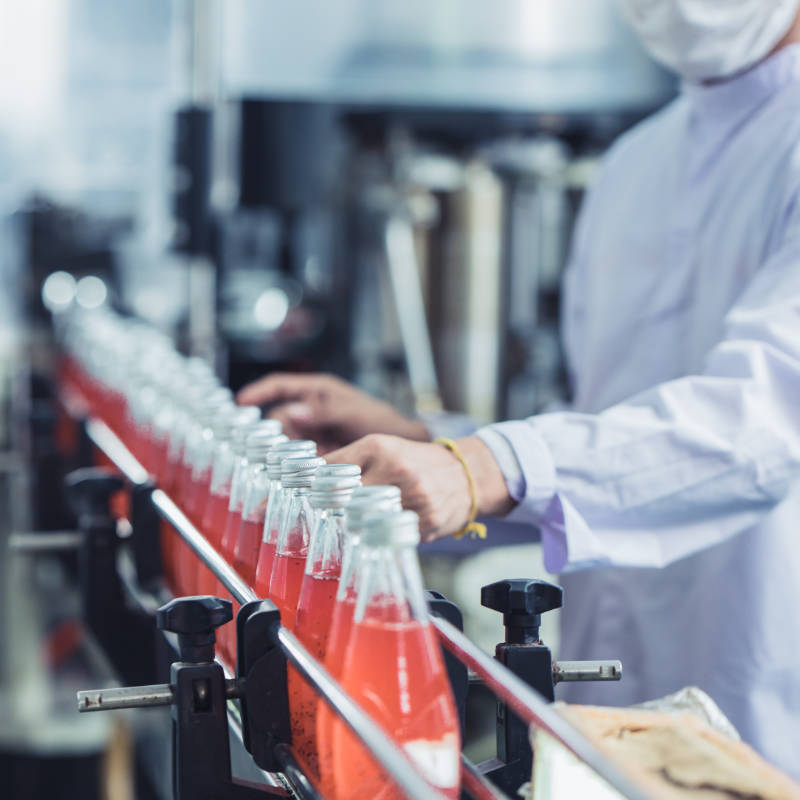
Food hygiene course benefits
Protects customer and employee health
Training in food hygiene educates employees on the proper handling, storage, and preparation of food, significantly reducing the risk of foodborne illnesses.
Meets food safety regulations
Comprehensive food hygiene courses help organisations comply with food safety regulations enforced by the Food Standards Agency. Compliance is crucial to avoid legal penalties and ensure that food safety practices are up to date.
Protects your organisation’s reputation
Our food and hygiene courses ensure that employees understand the importance of maintaining high standards of cleanliness and food safety. This can safeguard an organisation’s reputation and build customer trust.
Improves operational efficiency
Proper food and safety training can streamline kitchen operations by teaching employees the best practices for cleanliness and food safety. This can lead to more efficient processes, reduced waste, and lower costs associated with food spoilage and contamination.
Food hygiene FAQs
Do I legally need a food hygiene certificate?
There is no legal requirement for a food business owner or their staff to hold a food hygiene certificate.
However, the Food Safety Act 1990 mandates that anyone handling food must be properly trained and have sufficient knowledge of food hygiene practices to ensure food safety.
Although not legally required, obtaining a food hygiene certificate is highly recommended as it demonstrates compliance with these regulations and ensures that employees are adequately trained in safe food handling procedures.
Can I do a food hygiene course online?
Yes, you can take a food hygiene course online.
These courses are convenient, allowing you to learn at your own pace and often provide a certificate upon successful completion, which can demonstrate your knowledge of food hygiene to employers and regulatory bodies.
How long does a food hygiene course take?
A basic food hygiene course typically takes around 1 to 2 hours to complete online.
More advanced courses, such as Level 2 or Level 3 Food Safety and Hygiene, may take between 4 to 8 hours, depending on the depth of the content and the level of detail required.
These courses are often self-paced, allowing participants to complete the training in their own time.
What legislation covers food safety in the UK?
Food safety is governed by the Food Safety Act 1990, which sets out the requirements for food safety, including the safe preparation, storage, and handling of food.
The Food Hygiene (England) Regulations 2006 (and equivalent regulations for Scotland, Wales, and Northern Ireland) provide detailed guidelines on food hygiene standards.
These regulations align with the European Union’s General Food Law Regulation (EC) 178/2002, which continues to influence UK food safety standards post-Brexit.
What is the danger zone with food?
The danger zone for food refers to the temperature range between 5°C and 63°C (41°F and 145°F), where harmful bacteria can rapidly multiply, increasing the risk of foodborne illnesses.
To ensure food safety, perishable foods should be kept out of this temperature range by refrigerating them below 5°C or cooking them above 63°C.
What is a food safety policy?
A food safety policy is a documented set of guidelines and procedures designed to ensure that food is handled, prepared, stored, and served safely within an organisation.
It explains the standards and practices employees must follow to minimise the risk of foodborne illness, contamination, and other health hazards.
Related resources
Stay up to date with food safety standards and legislation with our free guides, podcasts and webinars.

What are the benefits of implementing ‘clean as you go’?
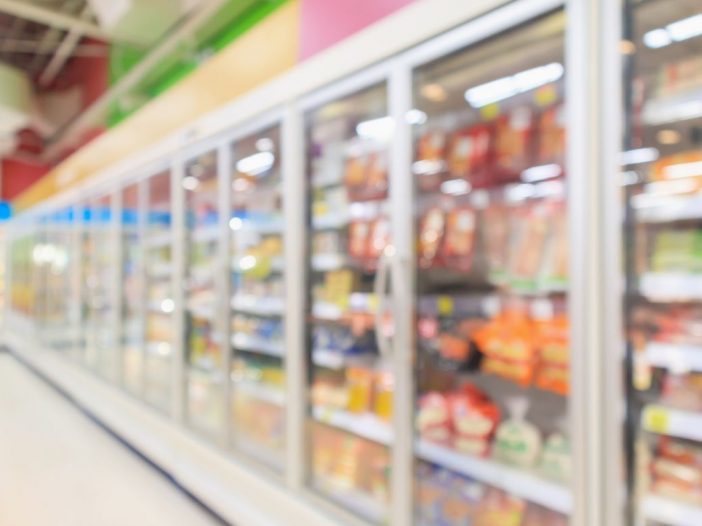
A food safety guide to frozen food
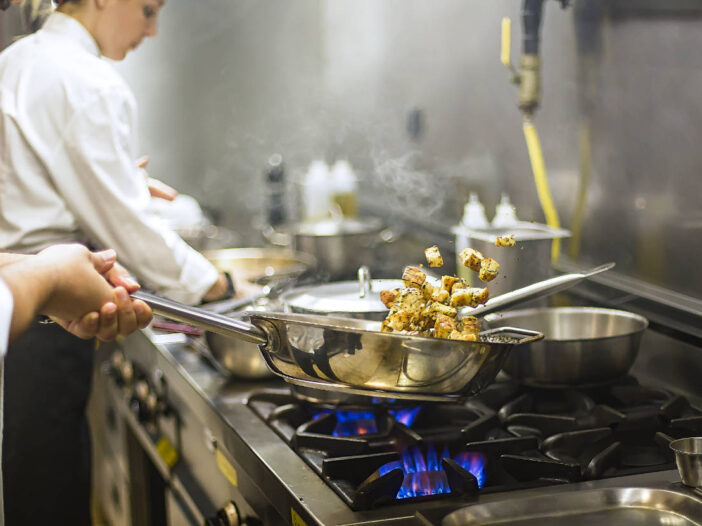
Essential bar and restaurant health and safety requirements
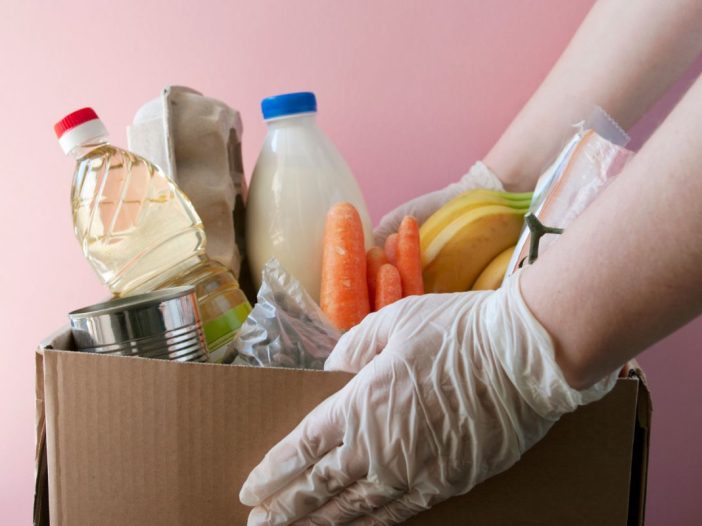
Managing food safety – five most high-risk foods
Food Hygiene – Download course information
